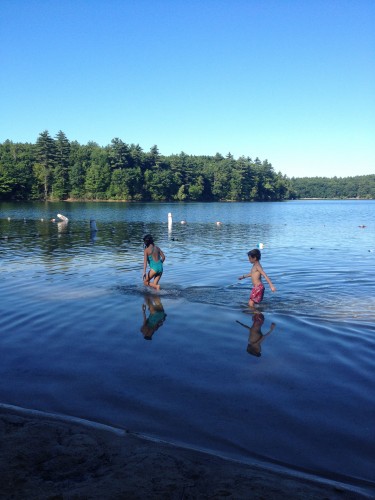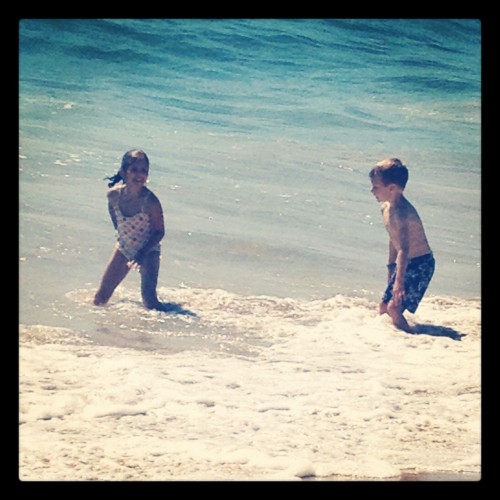
Yesterday morning, Grace and I drove Whit to camp. This week is lacrosse camp for him, and she is home because she heads to sleepaway camp on Thursday morning. En route, “I Hope You Dance” by Lee Ann Womack came on the radio. I turned it up. “Listen to this, guys! No, really. Listen. This is the best summary I know of what I want for you both, as your mother.”
I glanced back in the rear view and saw that they were both listening. Each was turned, looking out of the window on their side of the car. Give the heavens above more than just a passing glance, sang Lee Ann.
“Well, we do that, Mummy.” Grace chimed in.
“We do?” I smiled.
“Yeah, we look at the sky all the time!” Whit added. We fell silent again, listening.
I hope you still feel small when you stand beside the ocean came out of the radio. “I know what that feels like!” Whit laughed. “When I swim out to the raft, or when we jump off the boat into the ocean, I feel tiny! Sometimes it’s sort of scary!” Grace nodded with a faint smile on her face.
When the song came to an end, I turned the radio off. “What do you guys think that means, I hope you dance?”
“I think maybe it means doing big things, having experiences. Right?” Grace said.
“Also, taking risks?” Whit offered.
“Yes. I think it means living life, you know? Jumping in.”
“Like we do off the boat, or we did at Walden that day?” Whit asked. I remembered the two of them hurtling headlong into the clear, still water of Walden Pond early in the morning, remembered the peals of their laughter in the morning stillness.
“Yes. Exactly.” I blinked back tears. “And you know, the other line I really, really love in that song is I hope you never lose your sense of wonder.” The brake lights in front of me blurred. I peered in the rear view mirror again. They were both staring out their windows. I started to say something and then I stopped myself. I focused on the lights in front of me and I drove. Grace and Whit were quiet in the back.
After a couple of minutes of silence, I finally said, “I really do hope that, you know. Probably most of all. Never lose your sense of wonder. There’s magic everywhere, and I hope you can always see it.”

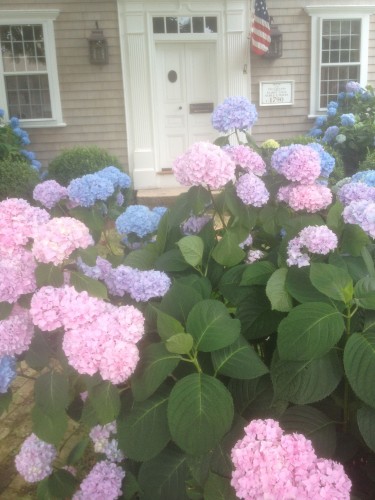
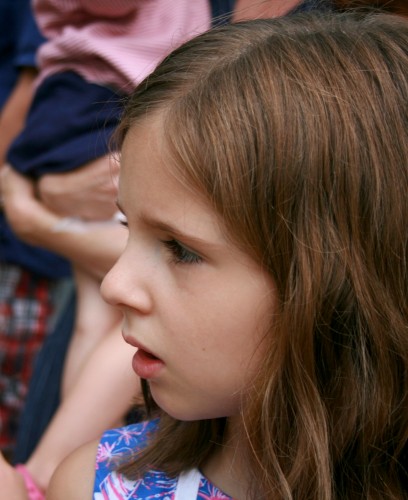
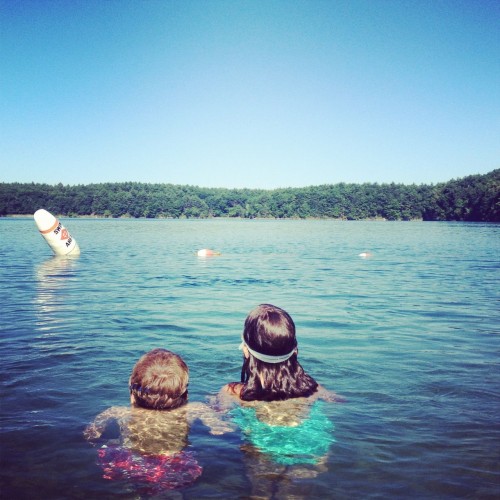
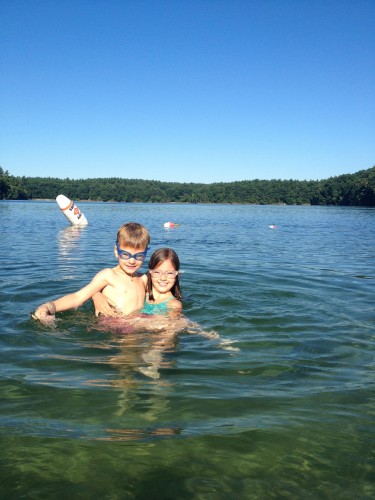 We woke to a clear blue early July morning and headed immediately west, hoping to beat the crowds that I know swarm Walden Pond on warm days. Arriving just before 8, we were almost alone. The children immediately walked into the water, marveling at how clear it was, and how warm. All three of us ducked under the first line and swam out, noticing that the water quickly grew darker, debating why this was. It got deep quickly, Grace noticed. And it did. After a bit of a swim we turned around and returned to where they could stand.
We woke to a clear blue early July morning and headed immediately west, hoping to beat the crowds that I know swarm Walden Pond on warm days. Arriving just before 8, we were almost alone. The children immediately walked into the water, marveling at how clear it was, and how warm. All three of us ducked under the first line and swam out, noticing that the water quickly grew darker, debating why this was. It got deep quickly, Grace noticed. And it did. After a bit of a swim we turned around and returned to where they could stand.